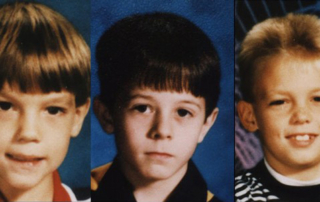The “Other” West Memphis Three (part 1): Ain’t No Thing
Pam Hicks’ lawsuit is latest evidence of the patience of parents of West Memphis victims in the face of decades-old unsolved murders. The lawsuit does not concern itself with West Memphis and Arkansas authorities’ devastating mishandling of her son’s murder investigation. Pam (Hobbs) Hicks asks only to see her deceased son’s possessions, which were seized as evidence after his murder in 1993, and which remain locked away by West Memphis Police although the case is, according to the State, “closed.”




